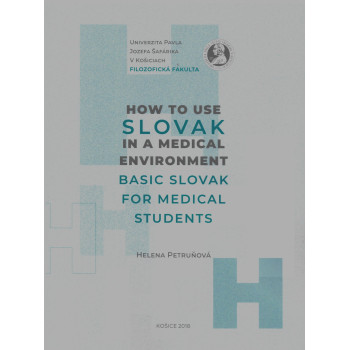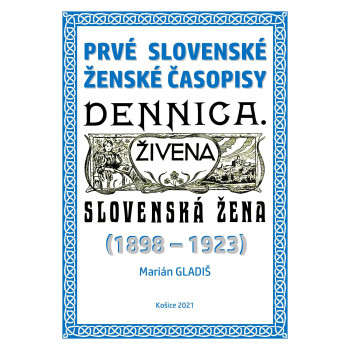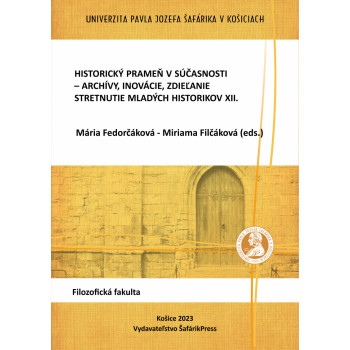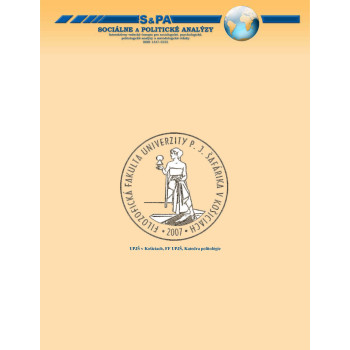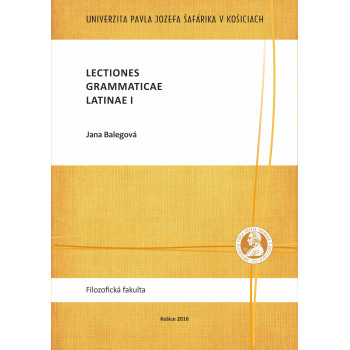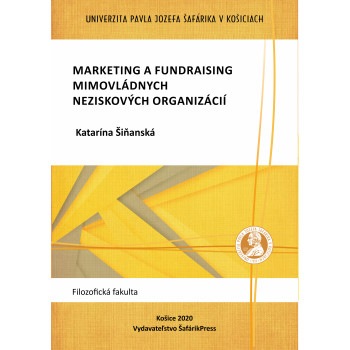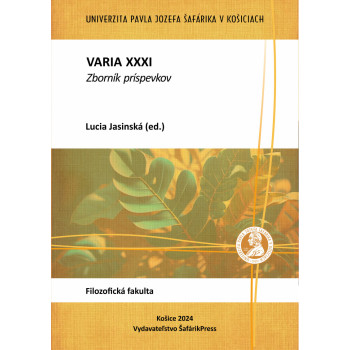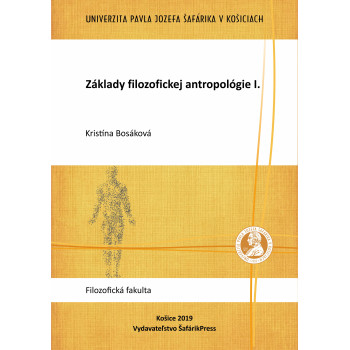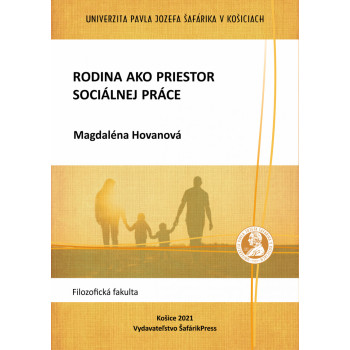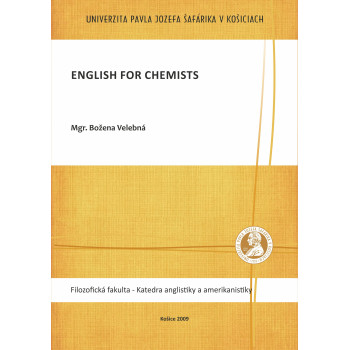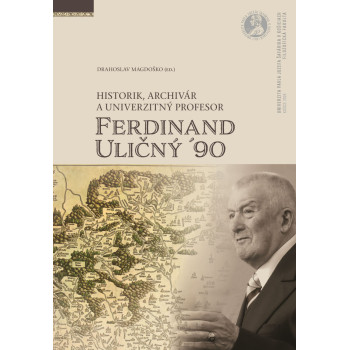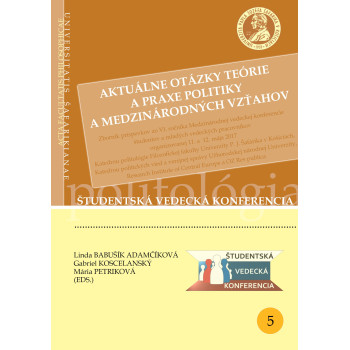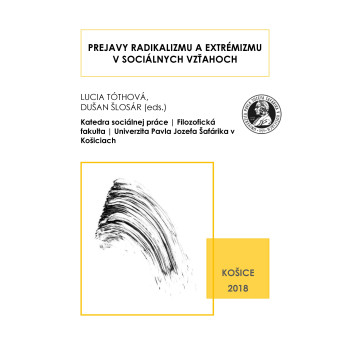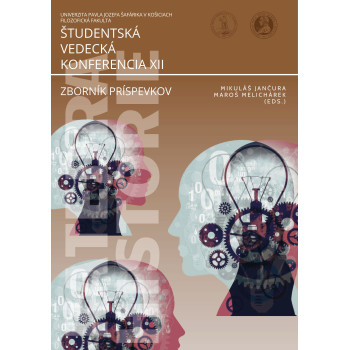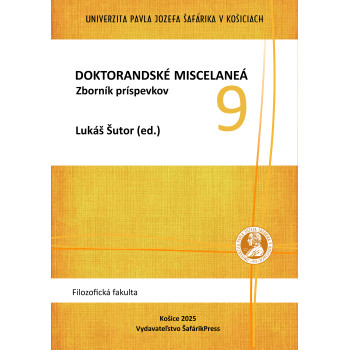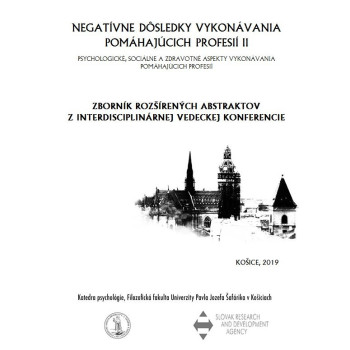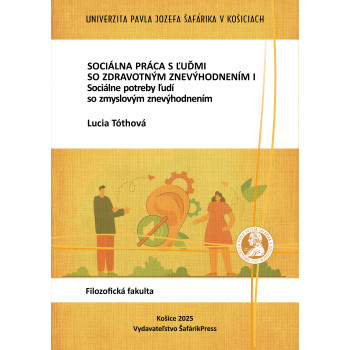E-book
Linda Babušík Adamčíková - Gabriel Koscelanský - Mária Petriková (eds.)
Proceedings of the VI. Annual International Scientific Conference of Students and Young Researchers organized on May 11–12, 2017 by the Department of Political Science of the Faculty of Arts at Pavol Jozef Šafárik University in Košice, the Department of Political Sciences and Public Administration at Uzhhorod National University, the Research Institute of Central Europe, and the Res publica Association.
Presented publication is an outcome from the international scientific conference for students and young scientists that took place on 11th and 12th May 2017 at the Department of Political science, Faculty of Arts, Pavol Jozef Šafárik University in Košice. The main aim of the presented is to bring up outcomes of research of young scientists and students from Slovakia, as well as from abroad.
This conference proceedings contains 19 papers in Slovak, Czech and English language. Papers are dealing with current issues of theory and practice of politics and international relations. We can find paper analyzing globalization, international terrorism, topic of EU or development of European states. The conference proceedings contents also papers regarding the far-right parties, role of women in politics and integration migrants in Slovak republic.
Download the e-book for free (pdf)
